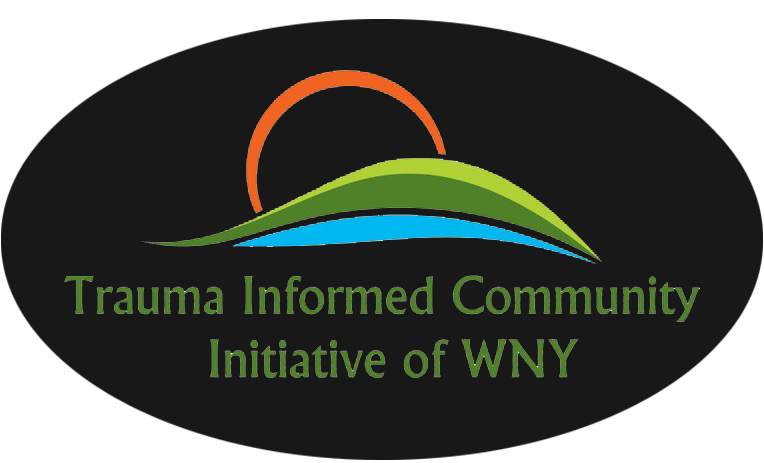“The most beautiful people we have known are those who have known defeat, known suffering, known struggle, known loss, and have found their way out of the depths.” -Elisabeth Kübler-Ross, Psychiatrist & Author
Icon Key
Administration for Children and Families Trauma Resources Guide Trauma-Informed Human Services
Provides question and answer for service providers seeking guidance on implementation of a trauma informed care approach with their clients/patients.
Culturally-Competent Trauma-Informed Care
This website contains facts and tips to assist health care providers to learn how to be culturally competent when assessing for trauma. The page provides examples of factors that might impact one’s vulnerability to trauma, explores how culture may affect one’s reaction to trauma, and identifies ways in which verbal or non-verbal behaviors may be indicators of trauma.
Handbook for Healthcare Practitioners
This handbook provides health care providers with a foundation of how to create a safe space by using a trauma-informed approach for all patients they serve in their offices. One of the components of applying a trauma informed approach with those who have been exposed to violence and have experienced trauma and how it impacts their health.
Recognizing and Addressing Trauma in Children
The New York State Office of Mental Health (OMH) and Coordinated Care Service Inc. (CCSI) This newsletter describes events offered to providers to improve practices, contribute to the directory, brainstorm and collaborate services. This tutorial is for early childhood mental health consultants to better understand what is meant by trauma, recognize the developmental context of trauma in early childhood, and extend their own knowledge for intervention through consultation.
The Link Between Trauma and Addiction
This article details statistics on the prevalence of trauma among those experiencing addiction problems. It also discusses the ways in which addiction can be a traumatic experience in and of itself, building upon this information by providing brief thoughts on how to sensitively address this in practice.
Trauma-Informed Care Tools: Screening, Assessment, & Intervention
This website contains tools for conducting trauma-informed screening, assessment, and intervention with a focus on serving families with children. The information provided can guide healthcare providers when identifying children and families who may benefit from additional services intended to address trauma/adversity and its impact. These tools also provide guidance to guard against medical traumatic stress and re-traumatization.
Trauma-Informed Pocket Cards Healthcare Providers
This page contains a PDFs that healthcare providers can print out and refer to when assessing for or responding to trauma among pediatric patients.
Trauma Resource Guide Trauma-Informed Human Services
Provides question and answer for service providers seeking guidance on implementation of a trauma informed care approach with their clients/patients.
Why Trauma-Informed Care Matters in Addiction Recovery
This article discusses the link between trauma history and addiction and goes on to discuss the importance of using trauma-informed care in substance abuse recovery centers in order to help improve patient outcomes and help them live healthier lives.
Vicarious Trauma
Headington Institute/Understanding & Addressing Vicarious Trauma
This training manual educates helpers on empathy, and how continuously witnessing other peoples suffering can have long lasting effects on the worker. There are a number of activities to promote self-awareness and reflect on what they are doing to help minimize the vicarious trauma, how others view them, and their support systems. Additionally, the authors include an action plan for vicarious trauma, tools, books, and resources.
Inter-generational Trauma
A resource manual created by The Aboriginal Healing Foundation for service providers who work with Aboriginal persons impacted by trauma in a residential schools in Canada. The purpose is to increase awareness about this population, the history and culture while employing a holistic, cultural based approach to healing.
The Vicarious Trauma Toolkit
This toolkit provides a wealth of information for providers, agencies, organizations and systems to recognize the potential negative impact of the work they do. Tools and approaches to mitigate the impact of the work and promote vicarious resilience are also provided.
What are ACEs?
ACEs 101
ACEsTooHigh and ACEsConnection come together to provide the community with education on the biological impact of Adverse Childhood Experiences over a lifetime. This article reviews the ACE study, the impact of toxic stress, resilience, and an abundance of resources related to ACEs.
ACEs Information, Free Downloads and Resources to Educate Your Doctor
Chronic Illness Trauma Study explains the importance of medical professionals identifying their patients’ ACE score and how it impacts their role as treatment providers. Increasing awareness among staff and patients about the impact their ACE score has on their overall health.
ACEs Overview from CDC
The Centers for Disease Control proclaims Adverse Childhood Experiences can be prevented and this site discusses the need for safe, stable, nurturing relationships and environments can help children excel.
ACEs Prevention
ACE Inforgraph
The Robert Wood Johnson Foundation generated this info-graph that visually describes ACEs and their impact on individuals. This is a great resource to educate others on ACEs.
CDC Preventing ACEs Training Modules
The Centers for Disease Control and Prevention have developed evidence based training modules on how to prevent ACEs within our communities. This will help better your understanding of ACEs, risk and protective factors, and how to employ a public health approach to preventing ACEs.
Domestic Violence
Best Practices for Trauma-Informed Domestic Violence Programs
ODVN developed this manual to assist Ohio programs in improving their response to survivors who have experienced trauma. This document, Trauma-Informed Approaches: Promising {ractices and Protocols for Ohio's Domestic Violence Programs, was developed to assist domestic violence programs become more trauma-informed when providing services to survivors of domestic violence.
Website: Officer Involved Domestic Violence
This toolkit is intended to educate officers about Domestic Violence and Human Trafficking to create healthier families and communities.
Immigrants
Tip Sheet
This tip sheet addresses the needs of children who have experienced traumatic separation under sudden, chaotic, or unpredictable circumstances such as those related to war, refugee, or immigration.
Toolkit for providers working with immigrant families
This toolkit is intended to enhance service providers’understanding of the impact of lifetime exposure to violence, as well as the current stressors that immigrant families may experience, plays a crucial role in improving outcomes for children in all systems.
Refugee Trauma: The Anna Institute Report: Transcending Violence
This paper is meant to reach individuals who work in or care about the public mental health system – clinicians, administrators, policymakers, advocates, and consumer/survivors. The goal of the paper is to help people better understand who refugees are, how they differ from others, what their needs are, and how the mental health system could be most helpful. While refugees have many health, mental health, and social support needs, the focus here is on trauma.

